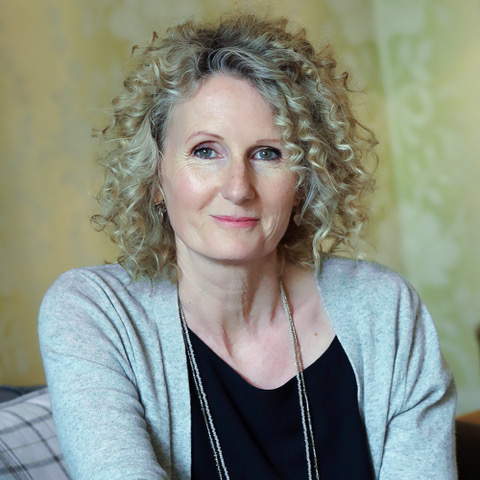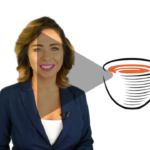We are launching a platform to connect independent teachers and students for one-to-one Skype French…

How do British children learn French?
Interview with Mandie Davis.
How do British children learn French?

L’enseignement des langues étrangères aux enfants est de plus en plus important. Mandie nous en dit plus.
Hello Mandie, can you introduce yourself ?
Hello! How to introduce myself …. ? Well I’m English, in my 50’s and have two daughters who are trilingual and bilingual. I live between England and France at the moment. I’m the founder of the Les Puces language learning method and company. In England the method is used to teach French to English children. My dream is for the method to be used internationally to teach languages.
Why it is important for you to learn French ?
It’s important for me to learn foreign languages because I believe it gives me more of an understanding of other people that I might meet. French was first language that I started to learn and was lucky in that it was taught in my primary school from the age of seven by a lovely Dutch lady, Miss Juriansa. I was in awe of her, with her bohemian style and long curly hair. She used to draw little noses as an extra accent above words, so we knew when to speak more through our noses. She taught us to sing “Smoke gets in your eyes” in French! As a child I suppose the language learning became a sort of escape to another world. I loved to hear stories of what children in other countries were doing and what their lives were like. We learned about their presidents and the way that they ate – it all seemed so exotic. Throughout my life languages have been useful to me. When I worked for a holiday company, I was asked to attend all of the European shows as I was able to speak a little French and German. As a reporter I was able to use languages to talk to people and have also been interviewed on French radio. It even helps with things like competing in a general knowledge quiz as so many of our words are linked and so one can guess meanings of things through the knowledge of language. Characters in books or films often speak in French or German and it’s nice to be able to understand them even though it’s not necessary, and of course holidaying in various countries, not only France means that you are able to join in and enjoy another culture more easily. France is our closest neighbour I think it good manners to try to communicate with them. Ultimately though, French has become an important component of my daily life through the creation of, and running Les Puces.
Why it is important for you that children learn a foreign language ?
Communication was of the greatest importance to me when bringing up my two girls. This could be a simple thing like ordering something in a restaurant themselves. It’s important that they are able to have the confidence to speak up – even in their mother tongue. Bringing them up bilingual and trilingual has hopefully broadened their capacity to be confident and have more options in the world. My wish for them is to look up and see broad horizons, and to feel they have choices before them. In creating Les Puces I am hoping to give other children that sense of wonderment and to plant a seed in them to want to learn more.
From what I have read, the brain is like a muscle and we would do well to exercise it! We seem to respect sport, and exercise for the body, but don’t consider that the brain needs to be treated in the same way. Different subjects use different parts of the brain and languages use a particular part that we can’t exercise in another way. When children are young they are so flexible and able to take on new information and ideas. It’s wonderful to see them thrive and they always surprise me with how much they retain, and how much they enjoy learning. The only people holding them back are the adults!
How do British Children learn French nowadays ?
Having had two girls in the French school system I can see that there are many comparisons between the two countries and how we teach each other’s languages. For example, in France, the government obviously state that a certain amount of time should be spent learning English, and so the primary schools do their best. That could be a bilingual teacher taking very competent classes, a local mum (like me, when I was there) coming in and helping with the lessons …. or a French teacher who speaks no English struggling to do her best, with bad pronunciation and little understanding.
Looking at the English school system I see many similarities. The government say that all children from the age of 7, should have one hour of Modern Foreign Languages (MFL) a week – and it’s up to the primary schools to try and provide that. We see the same things happening as in France. If a parent speaks French or Spanish, they might come in and run classes on whatever subject they have thought of for that week. When the parent leaves, another one might take their place, or the language changes as another parent has a different skill ….. it’s really not good enough. I’m sure no-one would think of asking an accountant to come and teach maths for example, yet languages seem to have drawn the short straw and for many schools it’s a tick box scenario. “This half term we learned about the Andes and learnt how to say ‘Hola’ “ was a comment I had from one school when asked about their MFL. I’m all for mixing geography and languages …. but this was slightly missing the point I think. I believe it’s up to parents to ask schools what MFL they are providing. Is there a language after school club? If we don’t start to introduce more languages at a young age, then how can we expect our children to enjoy them at GCSE or A level, or to go on to university to study them? We now have a language crisis in the UK and while our children are living in a vacuum of language exposure, their peers across Europe are going to school hearing multicultural songs even on school bus.
How to know more about your work ?
I’m always happy to talk about my work! People may contact me on my email mandie@lespuces.co.uk. I am interested in taking the Les Puces method to France next, and to use it to teach the English language. If anyone has the time and resources to make that happen, please get in touch and let’s get Les Puces hopping across the la manche!






